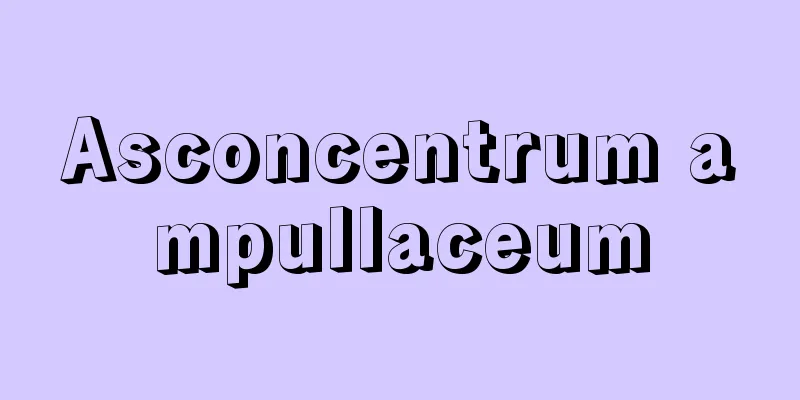Environmental rights

|
The right to enjoy clean air and water, and a quiet environment free from noise. In addition to the natural environment, some see it as a right to social environments such as roads, parks, and cultural facilities, as well as the cultural environment such as historical and cultural properties. Reflecting on the ineffectiveness of existing legal theories for preventing pollution, the right was proposed with the intention of being a legal weapon for protecting a healthy environment. This way of thinking first appears in the preamble to the Tokyo Metropolitan Pollution Prevention Ordinance, enacted in 1969 (Showa 44), which states, "All citizens of Tokyo have the right to live a healthy, safe and comfortable life, and this right must not be infringed needlessly through pollution." An international symposium on pollution held in Tokyo the following March called for the establishment of environmental rights, declaring, "What is particularly important is that we call for the establishment in the legal system of the principle that every person has the right, as a type of fundamental human right, to enjoy an environment free from factors that infringe on their health and welfare, and the right to share in natural resources, including natural beauty, which is the heritage that the present generation should leave to future generations." Furthermore, at the Japan Federation of Bar Associations Human Rights Conference held in Niigata in September of the same year, two lawyers from the Osaka Bar Association proposed for the first time a new right called the right to the environment, attracting widespread attention. According to their argument, the right to the environment is a fundamental right like the right to life that allows people to demand that the national and local governments ensure a good environment, and is also a fundamental social right in that it protects the socially vulnerable victims of pollution from powerful corporations. The basis for this is Article 13 (right to pursue happiness) and Article 25 (right to life) of the Japanese Constitution. At the same time, the right to the environment is a private right that allows people to directly control the environment and eliminate any infringement. What is distinctive about this argument is that the right to the environment is not merely a declarative or programmatic right, but is constructed as a right that actually functions in court. The theory of environmental rights has been widely accepted by residents' groups suffering from pollution, and has been asserted as the basis for lawsuits such as the Date (Hokkaido) Environmental Rights Lawsuit, the Buzen (Fukuoka Prefecture) Environmental Rights Lawsuit, the Osaka Airport Pollution Injunction Lawsuit, the Nagahama Town (Ozu City, Ehime Prefecture) Beach Access Lawsuit, and the Nagara River (Gifu Prefecture) Estuary Dam Injunction Lawsuit. However, since human activities always have some impact on the environment, a theory that allows for such absolute injunctions could result in human activities being prohibited in principle. A proper balance of interests is always necessary in human society, and this theory appears to be too rigid. In the end, it has not been adopted by the courts. Many precedents state that "environmental rights cannot be recognized as private law rights because there are no provisions for them in positive law and the subject, object and content of the right are unclear." However, the assertion of environmental rights has not been in vain. Conventional theories have been significantly reoriented toward emphasizing the value of the environment, and many court cases have incorporated the idea of environmental rights. The right to access beaches is a branch or an advanced form of environmental rights, but has not yet been recognized by courts. Article 3 of the Basic Environment Law enacted in 1993 stipulates that appropriate environmental conservation must be carried out "so that present and future generations can enjoy the benefits of a healthy and bountiful environment and that the environment, which is the basis for the survival of humankind, will be maintained into the future," but does not go so far as to recognize environmental rights. Many local government ordinances (basic environmental ordinances) recognize environmental rights, but their legal nature is merely declaratory and does not serve as a basis for injunctions in civil lawsuits. [Yasuhito Abe] "Environmental Rights, edited by the Osaka Bar Association Environmental Rights Study Group (1973, Nippon Hyoronsha)" ▽ "Environmental Rights: Principles and Trials by Awaji Takehisa (1980, Yuhikaku)" ▽ "Environmental Law, 2nd Edition, edited by Abe Yasutaka and Awaji Takehisa (1998, Yuhikaku)" [References] | | | | | |Source: Shogakukan Encyclopedia Nipponica About Encyclopedia Nipponica Information | Legend |
|
きれいな空気・水、騒音のない静かな環境を享受する権利。広くは自然環境のほかに道路・公園・文化施設などの社会的環境、さらには歴史的文化財などの文化的環境を求める権利として構成する立場もある。公害防止のために既存の法理論が有効に機能しないことを反省し、健全な環境を守るための法的武器たることを意図して提唱された。 こうした考え方は、まず1969年(昭和44)に制定された東京都公害防止条例の前文に現れている。すなわち、「すべて都民は、健康で安全かつ快適な生活を営む権利を有するのであって、この権利は、公害によってみだりに侵されてはならない」というのである。その翌年3月に東京で開催された公害に関する国際シンポジウムは、環境権の確立を要請して次のように宣言した。「とりわけ重要なのは、人たるものだれもが、健康や福祉を侵す要因に災いされない環境を享受する権利と、現在の世代が将来の世代へ残すべき遺産である自然美を含めた自然資源にあずかる権利とを、基本的人権の一種としてもつという原則を、法体系のなかに確立するよう、われわれが要請することである」。 さらに、同年9月新潟で開催された日本弁護士連合会人権擁護大会で、大阪弁護士会の2人の弁護士が環境権という新しい権利を初めて提唱し、広く注目を浴びた。その主張によると、環境権は、国や地方公共団体に対してよい環境を確保することを求めることができる生存権的基本権であるとともに、強大な企業から社会的弱者である公害の被害者を守るための権利である点で社会的基本権である。その根拠は日本国憲法第13条(幸福追求権)および第25条(生存権)である。また同時に、環境権は、環境という対象を直接に支配し、その侵害があれば、これを排除できる私権である。この主張は、環境権を単なる宣言的・プログラム的な権利ではなく、裁判の場で実際に機能する権利として構成するところに特色がある。 環境権理論は公害に悩む住民団体に広く受け入れられ、伊達(だて)(北海道)環境権訴訟、豊前(ぶぜん)(福岡県)環境権訴訟、大阪空港公害差止訴訟、長浜町(愛媛県大洲市)入浜(いりはま)権訴訟、長良(ながら)川(岐阜県)河口堰(せき)差止訴訟などの根拠として主張された。 しかし、人間活動はつねに環境になんらかの影響を与えるものであるから、こうした絶対的な差止めを認めようとする理論によれば、原則として人間活動は禁止されることになりかねない。人間社会ではつねに利害の適正な衡量が必要なのであって、この理論は硬直的にすぎたとみられる。結局、これは、裁判所の採用するところとはなっていない。判例では、「環境権なる権利は、実定法上その規定がなく、権利の主体、客体及び内容が不明確であるから、私法上の権利として認めることはできない」とするものが多い。 しかし、環境権の主張はむだだったわけではない。従来の理論も環境の価値を重視する方向へとかなり方向転換し、裁判例でも環境権的発想を取り入れたものは少なくない。なお、入浜権は環境権の一分枝ないし発展形態であるが、裁判上承認されるには至っていない。1993年(平成5)に制定された環境基本法3条は、「現在及び将来の世代の人間が健全で恵み豊かな環境の恵沢(けいたく)を享受するとともに人類の存続の基盤である環境が将来にわたって維持されるように」適切に環境保全がなされなければならないと規定するものの、環境権を認めるには至っていない。地方公共団体の条例(環境基本条例)では環境権を認めているものが多いが、その法的性質は単なる宣言的なもので、民事訴訟の差止めの根拠となるようなものではない。 [阿部泰隆] 『大阪弁護士会環境権研究会編『環境権』(1973・日本評論社)』▽『淡路剛久著『環境権の法理と裁判』(1980・有斐閣)』▽『阿部泰隆、淡路剛久編『環境法・第2版』(1998・有斐閣)』 [参照項目] | | | | | |出典 小学館 日本大百科全書(ニッポニカ)日本大百科全書(ニッポニカ)について 情報 | 凡例 |
<<: Gankeiji Temple - Gankeiji
>>: Environmental art (English spelling)
Recommend
Cho Bongam - Cho Bongam
1898‐1959 South Korean politician. Born on Ganghwa...
Igo
The sound of moaning. The sound of reading. Song D...
Cephalanthera longibracteata (English spelling)
… [Ken Inoue]. … *Some of the terminology that me...
The Emishi Uprising in the First Year of the Kansei Era
...The last armed struggle of the Ainu people aga...
Lutyens
British architect. Born in London. After graduatin...
Maurice Barrès
French novelist. Born in Charmes, Vosges. He star...
Liu E (English spelling)
Born: 1857 [Died] Xuantong 1 (1909) A Chinese nove...
Taura [town] - Taura
A former town in Ashikita District, southwest of K...
Public bath - Sento
A public bathhouse where people can bathe for a b...
Red trumpet - Red trumpet
A small terrestrial animal belonging to the Arthr...
Omiya Chobei - Omiya Chobei
Year of death: 10th July 1821 (7th August 1821) Ye...
Plugger
…The drilling speed varies greatly depending on t...
Photinia glabra - Photinia glabra
→ Photinia Source: Shogakukan Encyclopedia Nippon...
coat of arms (English) coatofarms
…The original term gentleman was a leisure class ...
Truman, DB (English name) TrumanDB
...On the other hand, as the 20th century began a...









